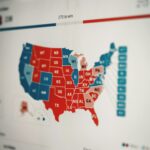Should You Be a Policy Generalist or Specialist?
 If you are wrestling over whether to specialize in any one field, as opposed to being a policy generalist, chances are you have already answered this question for yourself and just don’t realize it. Upon reflection, the answer will likely become clear as you consider the classes you have taken, the papers you have written, and the professional and life experiences you have obtained. Some of these choices, however, might also be just as much a result of circumstance as of preference. For instance, you took that class on Advanced Medicaid Policy, as opposed to Machiavelli, because your ex-girlfriend also had a penchant for Italian political philosophers. Thus, the more important question you should be asking is why you have already chosen the path you are on.
If you are wrestling over whether to specialize in any one field, as opposed to being a policy generalist, chances are you have already answered this question for yourself and just don’t realize it. Upon reflection, the answer will likely become clear as you consider the classes you have taken, the papers you have written, and the professional and life experiences you have obtained. Some of these choices, however, might also be just as much a result of circumstance as of preference. For instance, you took that class on Advanced Medicaid Policy, as opposed to Machiavelli, because your ex-girlfriend also had a penchant for Italian political philosophers. Thus, the more important question you should be asking is why you have already chosen the path you are on.
In my own case, it has never been necessary to ask whether I wanted to be a generalist. This certitude, however, may be unique to generalists. It seems natural to us to be interested in everything, to want to know the truth about everything, and to understand how it’ s all connected. Perhaps the more difficult challenge for the generalist is to harness this innate curiosity and turn it into a career. And that leads me to my first insight.
Insight 1: I didn’t plan any of this.
In all honesty, I never quite planned to become a policy analyst. As a true generalist, I’m not sure I could have. That being said, I knew I was interested in politics. It wasn’t as if I possessed more than a passing interest (most generalists have a passing interest in everything) in neurobiology or mechanical engineering. Although I wasn’t sure how my political interests would translate into a career, I did know what I didn’t want to do. I did not want to become an attorney. I did not want to go into politics. I did not want to teach political science.
I had figured out at least this much upon graduating from college. As an undergraduate at a small liberal arts school, I had majored in government, but taken courses in everything from philosophy to Vietnamese to playwriting. In the end, I gravitated toward the study of Middle Eastern politics. This was not, as I realized later, because I wanted to specialize in the Middle East. Rather, I was interested in how Islam had responded to the challenges of modernity, or more broadly speaking, answered for itself what philosophers call the “religion-political question.” Thus, even my attempt to focus on one geopolitical region had led to much more general, and far-reaching, interests.
Still, I was only dimly aware of these impulses upon graduation from college. After a year of doing volunteer work that had nothing to do with politics or public policy, I enrolled in the Ph.D. program in politics at the University of Dallas. My intention was not to become an expert in politics, or even to obtain a Ph.D., but simply to learn—about politics, but also philosophy, religion, literature—as much as I possibly could so as to begin to answer life’s deepest questions.
As Socrates’ example shows us, standing around asking questions all day doesn’t pay the bills. Since I was unable to market myself as a full-time philosopher and still not really interested in teaching, my job search after obtaining my “ABD” (all-but-dissertation) led me to consider working for a public policy think tank. I soon obtained a part-time position as an assistant editor; a post supplemented with a temporary job teaching history and government to junior high students.
Once the school year ended, I confirmed for myself that I didn’t really want to teach. As the summer came to a close, I obtained a full-time policy position with a small publishing house specializing in political news and analysis. While there, I wrote on a wide variety of topics, ranging from U.S.-Vietnamese trade relations to French defense spending to domestic budgetary policy.
And there I might have stayed, had it not been that this particular company suffered from the worst “corporate culture” I have ever toiled under. Thus, after less than a year, I moved to Northern Virginia to accept a position as a writer and researcher with a nonprofit focused on life and family issues.
Although my sphere of research had narrowed somewhat—I was no longer working on all things political— I was still responsible for covering a wide variety of subjects, most of which had broad ethical, religious, and cultural implications. In other words, I was still learning and writing on new and interesting topics every day.
If providence played a role in determining exactly where I was working, a common theme had begun to emerge. I excelled at quickly mastering a topic, writing a concise analysis, and then articulating how this issue was related to more basic social and political phenomena. This realization leads me to my second insight.
Insight 2: I love to learn.
I would wager most policy analysts or researchers love to learn. At bottom, a policy analyst is a problem-solver, and solving new and ever-evolving problems requires a new and ever-evolving knowledge base. The question, then, may not be so much whether you love to learn, but what kind of learning comes naturally. As a generalist, I love to learn something new every day. That is to say, there must be an element of novelty in what I am learning. This may be the result of a certain confidence, or perhaps arrogance, that the essential points of many issues can be grasped rather quickly. I intuit it is also related to a creative streak that becomes somewhat restless at the thought of settling down too long upon any one theme. In any event, this insight is very much related to another.
More insights next week.
Dr. Jameson Taylor is vice president for policy at the Mississippi Center for Public Policy. This is an excerpt from the Institute for Humane Studies’ Guide to Public Policy Careers.




